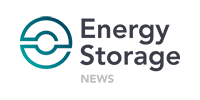 Eos Energy Storage, the startup that’s attracted utility interest from around the world in its low-cost, zinc-based batteries, is raising money to build more of them, and to get those units out in the field. Deployments are needed to prove the company’s bold claims of multi-hour, long-lasting energy storage at a cost of $160 per kilowatt-hour.
Eos Energy Storage, the startup that’s attracted utility interest from around the world in its low-cost, zinc-based batteries, is raising money to build more of them, and to get those units out in the field. Deployments are needed to prove the company’s bold claims of multi-hour, long-lasting energy storage at a cost of $160 per kilowatt-hour.
On Tuesday, Eos announced the initial closing of a sale in a private placement of approximately $23 million. The New York-based startup previously raised $23 million in May 2015 in a round led by AltEnergy, and about $27 million in two previous funding rounds from investors including OCI, NRG Energy and Fisher Brothers.
The money will fund the scale-up of contract manufacturing and commercial deployment of its Eos Aurora batteries. These cargo-container-sized, 1-megawatt, 4-megawatt-hour units use cathodes made from zinc, a much cheaper metal than lithium, but one that’s proven to be a challenge for rechargeable batteries.
Eos says it’s solved these problems through a proprietary coating that reduces corrosion over multiple charge-discharge cycles, as well as other materials and design improvements, to yield a battery with 75 percent round-trip efficiency and a 10,000-cycle, or 30-year, lifetime.
As for price, the company has long been targeting $160 per kilowatt-hour, which is about half the cost of the cheapest lithium-ion batteries on the market — although lithium-ion’s massive manufacturing base is sure to drive down those prices in the years to come.
Eos’ batteries sacrifice round-trip efficiency in comparison to lithium-ion, which is in the 90 percent range. But they have a better profile for multi-hour discharge cycles, particularly in the 4- to 6-hour range, where lithium-ion batteries really struggle.
Click Here to Read Full Article
read more
 SAN DIEGO, CA–(Marketwired – Oct 18, 2016) –
SAN DIEGO, CA–(Marketwired – Oct 18, 2016) –  Strategic planning of Chinese industry at a state level could see electrical energy storage installations grow in importance, rocketing to as much as 24GW by 2020, according to one analysis firm.
Strategic planning of Chinese industry at a state level could see electrical energy storage installations grow in importance, rocketing to as much as 24GW by 2020, according to one analysis firm. Rival energy storage companies sonnen and Tesla each started the week angling for the emerging smart battery market, with news of financing and partnerships.
Rival energy storage companies sonnen and Tesla each started the week angling for the emerging smart battery market, with news of financing and partnerships. What’s on tap? The makings of advanced batteries and a better way to deal with brewery wastewater.
What’s on tap? The makings of advanced batteries and a better way to deal with brewery wastewater. A team of researchers from Madrid is developing a thermal energy storage system that uses molten silicon to store up to 10 times more energy than existing thermal storage options. The hope is to develop the technology into a new generation of low-cost solar thermal stations to store solar energy in urban centers.
A team of researchers from Madrid is developing a thermal energy storage system that uses molten silicon to store up to 10 times more energy than existing thermal storage options. The hope is to develop the technology into a new generation of low-cost solar thermal stations to store solar energy in urban centers. The U.K. government should learn from California and incentivize energy-storage technology to help move away from dirty fuels, a cross-party panel of lawmakers said.
The U.K. government should learn from California and incentivize energy-storage technology to help move away from dirty fuels, a cross-party panel of lawmakers said. PAIA — The end of incentive programs doesn’t mean the door has closed on rooftop solar, but customers and businesses will have to start relying more on the still-growing technology of energy storage, industry experts explained at a community forum Thursday night.
PAIA — The end of incentive programs doesn’t mean the door has closed on rooftop solar, but customers and businesses will have to start relying more on the still-growing technology of energy storage, industry experts explained at a community forum Thursday night.



